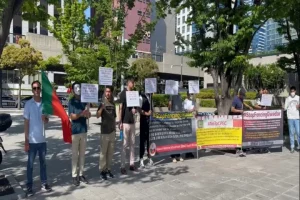Pakistan’s political uncertainty has had an impact on the inflow of foreign direct investments (FDI). In November, Pakistan’s net FDI inflow stood at $81.8 million — a drop of 48 per cent compared to $158.4 million in the corresponding month in 2021, State Bank of Pakistan data revealed. The chunk of inflow came into the financial business and power sectors, the data showed.
Besides China, Hong Kong, US, Netherlands and UAE remained the top sources.
The Chinese money primarily goes into funding the China Pakistan Economic Corridor (CPEC). However, inflow of funds from China too has been slowing with deteriorating economic and security situation in Pakistan.
The falling FDI inflow will be a cause for worry for policymakers, especially at a time when the country’s foreign exchange reserves at less than $7 billion are just enough to support a month’s imports. As on December 9, Pakistan’s foreign exchange reserves stood at $6.7 billion.
“The brewing political crisis is directly linked to the security situation and the recent violence has added to the problem. China, its most important ally and largest FDI source, is also slowing down and reducing its investments,” an analyst told India Narrative. “The solution lies in structural reforms and cleaning up the mess—that is not going to happen anytime soon. Their focus is on non-issues,” he added.
With general elections approaching, it is unlikely that Islamabad will take any pragmatic decision to heal the economy.
Notwithstanding the deepening economic crisis, Pakistan after agreeing to roll back subsidies in April, is back with doles. In October, the Shehbaz Sharif government carved out a sizeable subsidy programme facilitating cheap power to export oriented sectors.
Pakistan’s Finance Minister Ishaq Dar recently reduced petrol and diesel prices by (Pakistani) Rs 10 and Rs 7.5 respectively after the country’s former Finance Minister Miftah Ismail’s decision to raise prices and eliminate subsidies. The International Monetary Fund agreed to revive the $6 billion loan package only after Islamabad committed to increase levy on fuel and eliminate subsidies.
The Express Tribune noted that instead of reining in expenditures and rolling back subsidies, policymakers “appear to be doing the opposite.” “This points towards the misplaced priorities of the government,” it said, adding that Dar will face an uphill battle in convincing the IMF, considering the country’s deteriorating financial health.
Also read: Will the Sharif government revive the stalled CPEC?
India says Bilawal Bhutto’s uncivilised outburst is a new low even for Pakistan




















